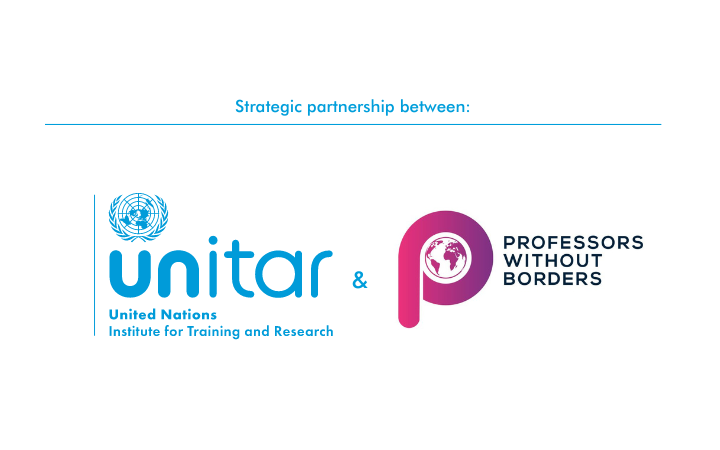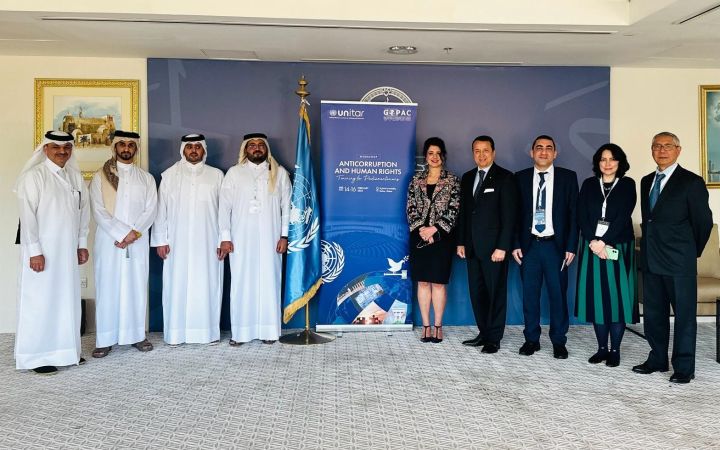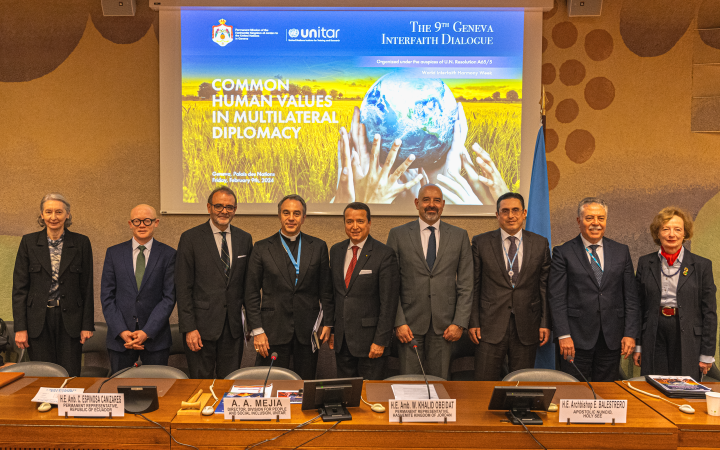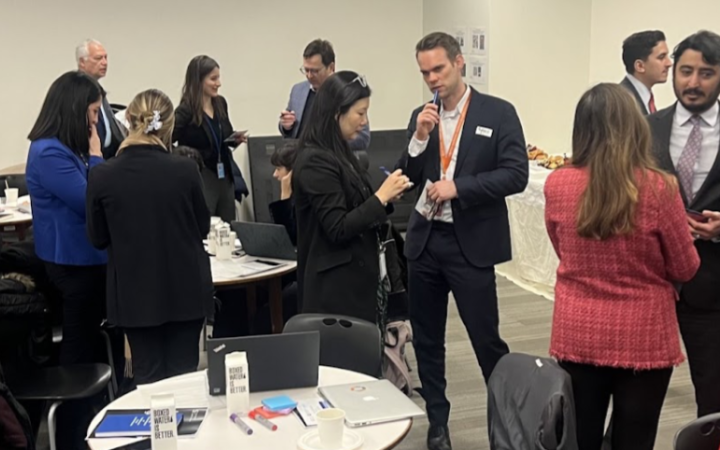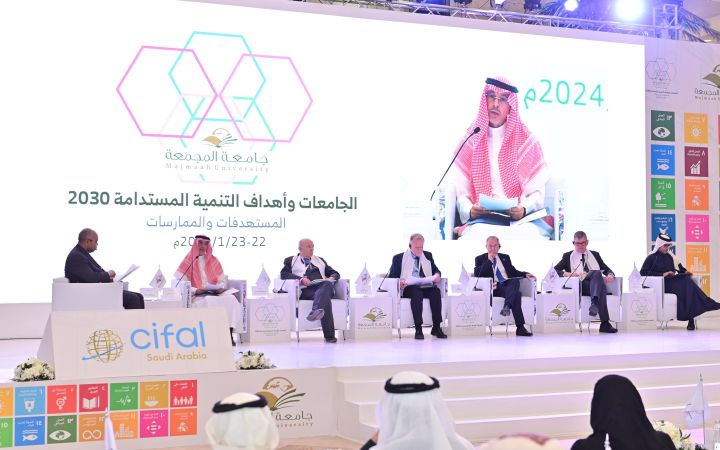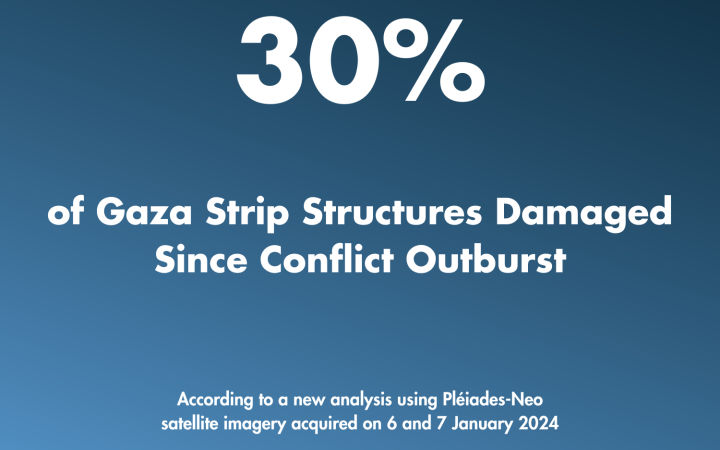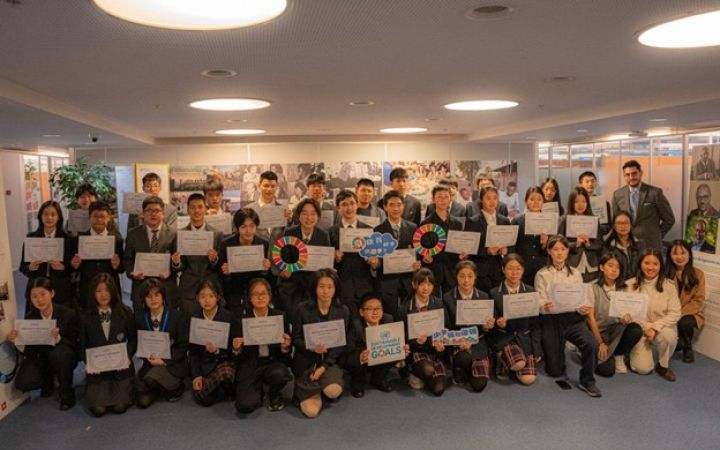Displaying 451 - 460 of 1112
22 February 2024, Hiroshima, Japan – Twenty-five women and youth from three sub-Saharan African countries will visit Japan for the third and final phase of the UNITAR training programme “Developing Green Livelihoods for Women and Youth in Africa: Strengthening Food Security, Supporting Climate Resilient Economies”. The participants will visit Tokyo and Hiroshima for an in-person workshop and study tour, from 26 February to March 2024.
26 February 2024, London, United Kingdom – The United Nations Institute for Training and Research (UNITAR) and Professors Without Borders (Prowibo) have entered into a strategic partnership, marking a significant stride in enhancing global higher education and research. This alliance, focusing on academic development and research, underscores a shared dedication to quality education and impactful innovation.
Signed by Mr. Evariste Karambizi of UNITAR and Dr. Caroline Varin of Prowibo, the Memorandum of Understanding (MoU) establishes a framework for research collaboration and educational resource sharing. Central to this partnership is the emphasis on Sustainable Development Goals (SDGs), especially SDG 4, SDG 16, and SDG 17, reflecting both organizations' aligned objectives. Key initiatives include joint research projects and the dissemination of findings through Prowibo’s academic journal, Higher Education Compass.
Signed by Mr. Evariste Karambizi of UNITAR and Dr. Caroline Varin of Prowibo, the Memorandum of Understanding (MoU) establishes a framework for research collaboration and educational resource sharing. Central to this partnership is the emphasis on Sustainable Development Goals (SDGs), especially SDG 4, SDG 16, and SDG 17, reflecting both organizations' aligned objectives. Key initiatives include joint research projects and the dissemination of findings through Prowibo’s academic journal, Higher Education Compass.
16 February 2024, Doha, Qatar - From the 14th to the 16th of February 2024, the United Nations Institute for Training and Research, UNITAR, and the Global Organization of Parliamentarians against Corruption, GOPAC, successfully celebrated the Workshop “Anti-corruption and Human Rights” Training for Parliamentarians.
15 February 2024, Geneva, Switzerland, This year's edition of the Geneva Interfaith Dialogue was themed around Common Human Values in Multilateral Diplomacy and took place at Palais des Nations, Geneva on February 9th. The Dialogue was co-hosted with the Permanent Mission of the Hashemite Kingdom of Jordan to the United Nations in Geneva under the auspices of UN General Assembly Resolution RES A/65/5, calling on the celebration and commemoration of World Interfaith Harmony Week. The occasion brought together over 80 representatives of the International Geneva community, a broad panel of ambassadors, and representatives from the world's main religions to discuss the connections between politics, religion, and society.
15 February 2024, Geneva, Switzerland – On 2 February 2024, UNITAR and Franklin University Switzerland signed an agreement for UNITAR to contribute to the university’s Master of Science in International Management programme.
7 February 2024, New York, USA – The United Nations Institute for Training and Research (UNITAR) New York Office, in partnership with the Permanent Mission of the Republic of Costa Rica to the United Nations and the Simon Institute for Long Term Governance, hosted a day-long seminar entitled 'Training course on AI governance for UN missions in New York' on both 6 and 7 February 2024. Over 60 participants from dozens of countries attended this series aimed to enhance engagement in negotiations of the Global Digital Compact (GDC) and the Pact for the Future.
5 February 2024, Majmaah, Kingdom of Saudi Arabia - UNITAR, in collaboration with its affiliated centre CIFAL Saudi Arabia, proudly announces the successful completion of the "Universities and the Sustainable Development Goals 2030: Targets and Practices" Conference. This significant event, under the esteemed patronage of His Excellency the Minister of Education in Saudi Arabia, Mr. Yousef Al-Benyan, and organized by CIFAL Saudi Arabia in strategic partnership with Majmaah University, NEOM, Alinma Bank, Al Rajhi Bank, and Times Higher Education, was held on January 22-23, 2024, in the Kingdom of Saudi Arabia.
2 February 2024, Geneva, Switzerland – The United Nations Satellite Centre - UNOSAT released a comprehensive assessment of the damage and destruction inflicted on structures in the Gaza Strip. The analysis, based on very high-resolution satellite imagery collected on 6 and 7 January, paints a stark picture of the extent of devastation in the Gaza Strip.
1 February 2024, Geneva, Switzerland – UNITAR is pleased to collaborate with Together for Safer Roads (TSR) to deliver joint training specifically designed to empower and improve safety systems for small to mid-size fleets, taking the best practices of the largest fleets and leading road safety technology companies, and distilling this information into a comprehensive fleet safety program structured around three key pillars: Safety Leadership; Training and Development, and Technology.
31 January 2024, Geneva, Switzerland – UNITAR and the International Training Centre for Authorities and Leaders in Shanghai (CIFAL Shanghai) proudly re-launched and hosted the Sustainable Development Goals (SDGs) Youth Empowerment Seminar for Change-makers at UNITAR headquarters on the 25th of January 2024.


